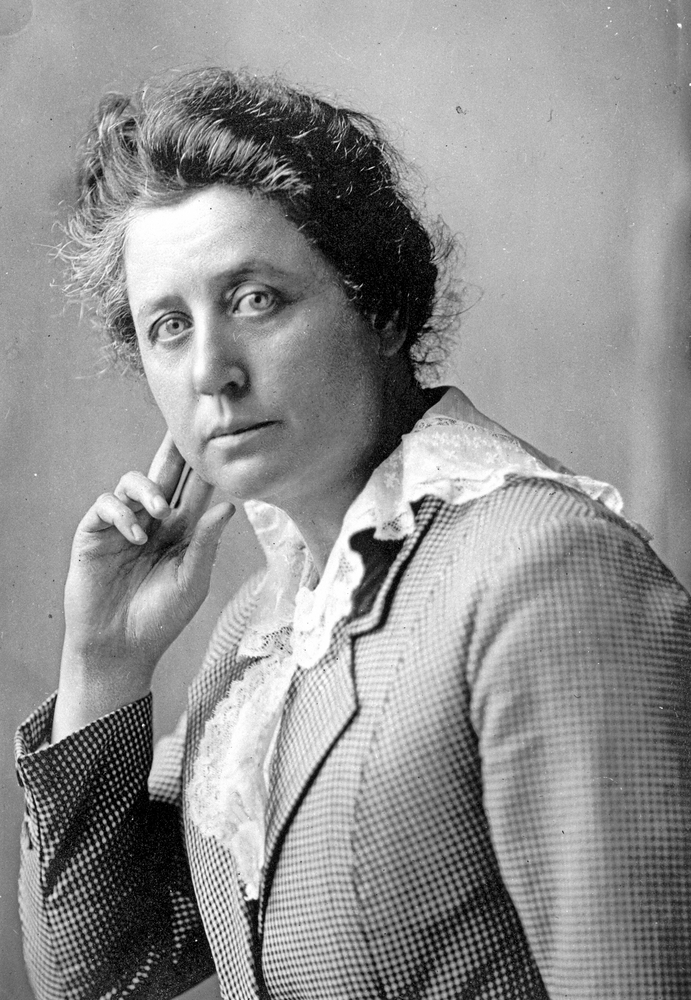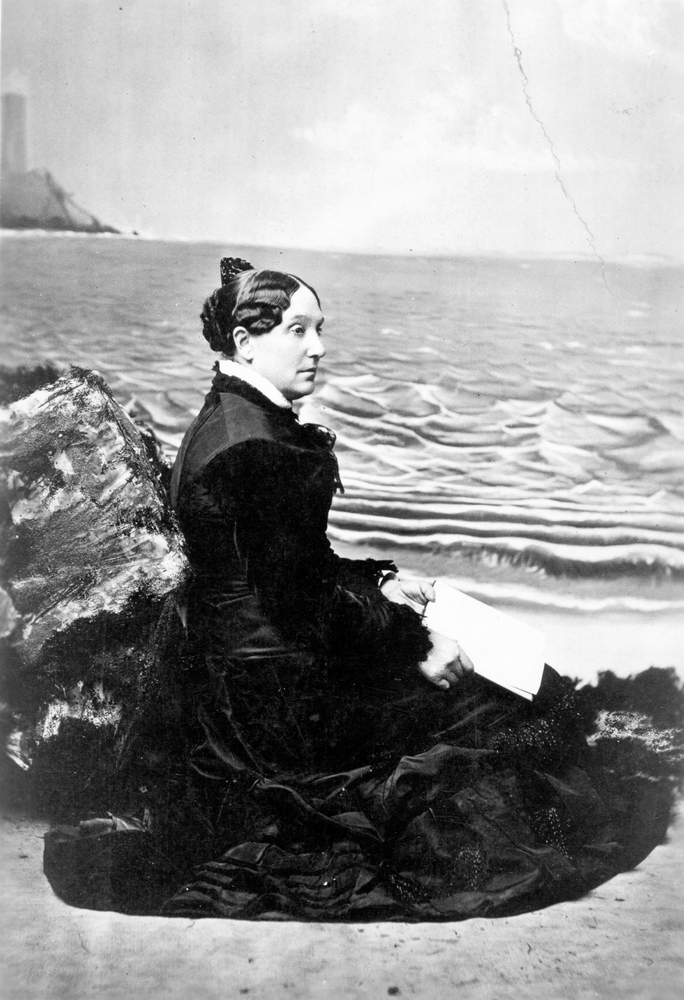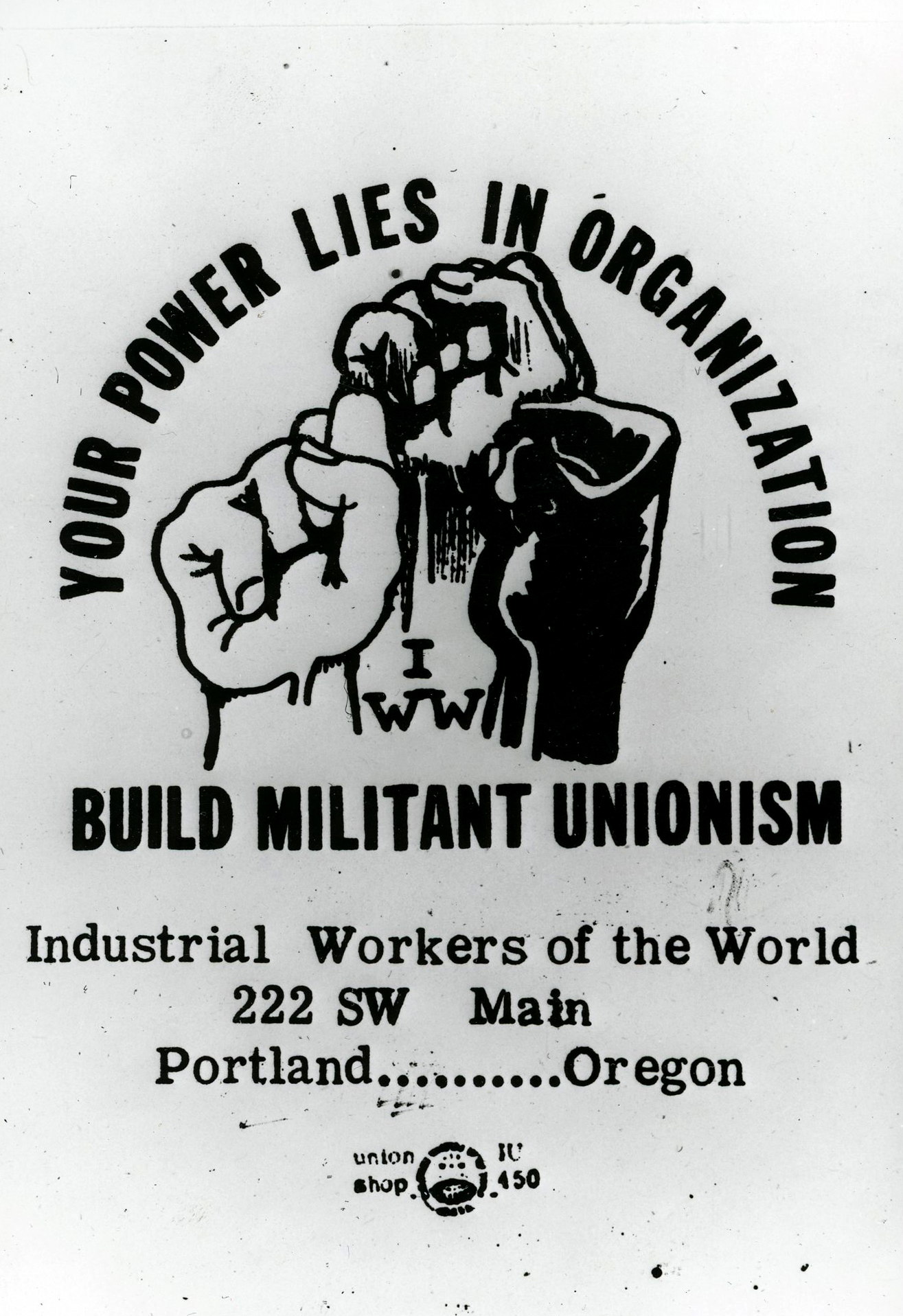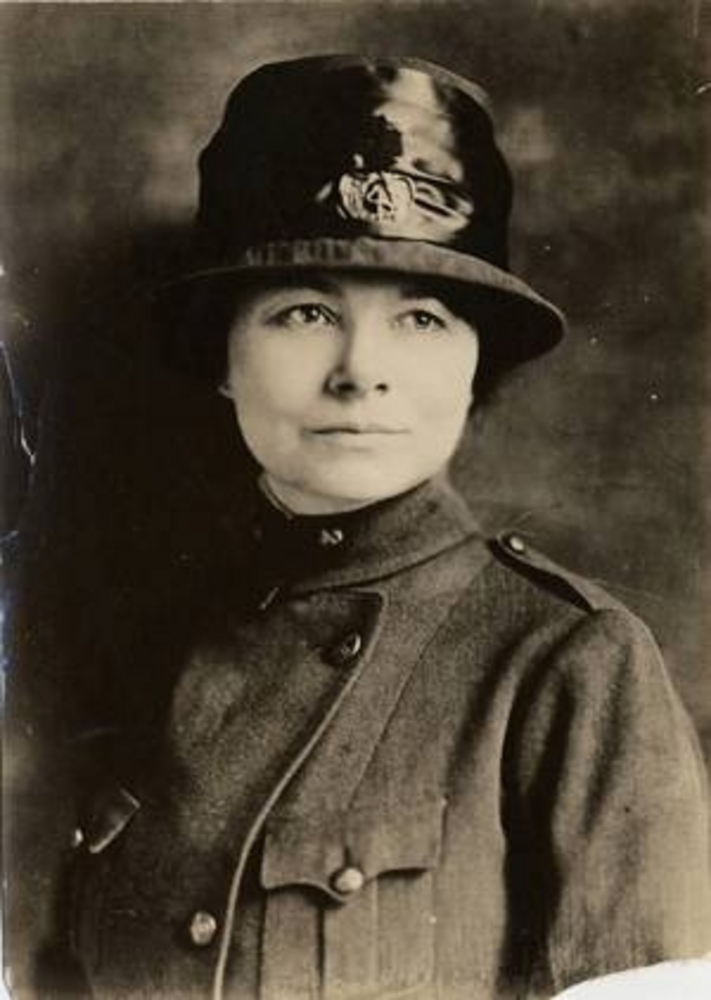Dr. Marie Equi was a fiercely independent Oregon physician who was engaged in the political turmoil and social change of the late nineteenth and early twentieth centuries. She was a fearless advocate for woman's suffrage, reproductive rights, labor rights, and free speech, and her raucous protests against imperialism and war gave her a reputation in Portland as one of the most outspoken agitators in town. For all her boldness, Equi was a dedicated caregiver who held her profession so dearly that even her close companions called her "Doc."
Equi was born to working-class parents in New Bedford, Massachusetts, a textile manufacturing center. Her father was Italian and a mason; her mother was Irish. She felt the sting of anti-immigrant sentiment and heard of deplorable working conditions. She witnessed the deaths of three siblings to childhood diseases and observed much of her mother's life defined by pregnancy, childbirth, and child care. Although she was an earnest student, she dropped out of high school to support her family by working in the textile mills until she and a woman friend left for a new life in Oregon. In 1892, they settled on a homestead along the Columbia River near The Dalles.
Equi's fiery behavior first came to public notice in 1893 when she horsewhipped a school superintendent in The Dalles for refusing to pay the salary owed to her companion. She later moved to San Francisco to attend medical school—a goal traditionally beyond the reach of a working-class woman. In 1903, she obtained a degree from the University of Oregon to become one of the small number of women physicians in the state. (She and four other women in her graduating class brought the number of women physicians to 60). After an internship in Pendleton, she established a general practice in Portland, primarily treating working-class women and children, often at no charge.
With a courage and conviction unusual for her time, Equi openly enjoyed associations with other women that would readily be called "lesbian relationships" today. For fifteen years she lived with a niece of the Olympia Brewing Company founder, and she adopted an infant girl whom the two women raised.
For ten years, 1903-1913, Equi was a model Progressive Era activist. She aligned herself with Oregon's indomitable champion of woman suffrage, Abigail Scott Duniway. She also pushed for an eight-hour workday, state support for higher education, and prison reform. In 1906, she earned widespread acclaim for her relief work in San Francisco after that city's devastating earthquake and fire. But a violent clash with police during a Portland cannery strike in 1913 radicalized Equi. She espoused anarchism, no longer believing that gradual political reform could achieve justice for workers. She supported the Industrial Workers of the World and criticized Portland's civic leaders for oppressing the working class and suppressing radical dissent. Never content with protest alone, Equi obtained food and shelter for the unemployed, distributed birth control information, and provided abortions to both poor and upper-class women.
Equi vehemently opposed war preparedness prior to World War I. She believed that profiteering capitalists and imperialists had engineered a conflict that left young men dead on the battlefields of Europe. In 1918, the federal government, in the anti-Bolshevik hysteria of the time, charged her with sedition for her anti-war speeches. She was convicted and served for ten months in San Quentin Prison.
Equi lived a quieter life after her release from prison in 1921, though she lived with the radical Elizabeth Gurley Flynn for a decade. She gave up her medical practice in 1930 due to ill health. She provided for her daughter, Mary, who, in turn, cared for her through her final days in Portland. Equi died in Portland in 1952.
-
Equi, Marie, bb002610.
Dr. Marie Equi. Oreg. Hist. Soc. Research Lib., bb002610
-
![]()
"Dr. Equi is Rearrested," Oregonian, March 14, 1919.
Courtesy Portland Oregonian, March 14, 1919
Related Entries
-
Abigail Scott Duniway (1834-1915)
Outspoken and often controversial, Abigail Scott Duniway is remembered …
-
![Industrial Workers of the World (IWW)]()
Industrial Workers of the World (IWW)
The Industrial Workers of the World (IWW or "Wobblies"), founded in 190…
-
Woman Suffrage in Oregon
The campaign to achieve voting rights (also called suffrage or the fran…
Related Historical Records
Map This on the Oregon History WayFinder
The Oregon History Wayfinder is an interactive map that identifies significant places, people, and events in Oregon history.
Further Reading
Maria Equi. Oregon Experience video. Oregon Public Broadcasting.
Helquist, Michael. "Criminal Operations": The First Fifty Years of Abortion Trials in Portland, Oregon." Oregon Historical Quarterly 116:1 (Spring 2015): 6-39.
Helquist, Michael. Marie Equi: Radical Politics and Outlaw Passions. Corvallis: Oregon State University Press, 2015
Sabatier, Julie. 'The Evergreen': Radical Oregonian Marie Equi's Legacy Lives On. Oregon Public Broadcasting, September 9, 2024.
Faderman, Lillian. To Believe in Women: What Lesbians Have Done For America - A History. Boston: Houghton Miflin Co., 1999.
Kennedy, Kathleen. Disloyal Mothers and Scurrilous Citizens: Women and Subversion During World War I. Bloomington: Indiana University Press, 1999.
Morantz-Sanchez, Regina Markell. Sympathy and Science: Women Physicians in American Medicine. New York: Oxford University Press, 1985.





